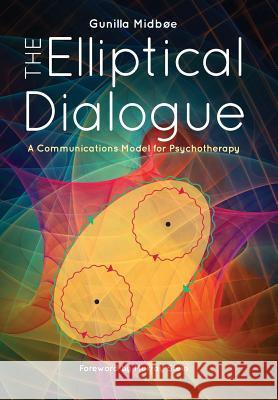The Elliptical Dialogue: A Communications Model for Psychotherapy » książka
The Elliptical Dialogue: A Communications Model for Psychotherapy
ISBN-13: 9781630514181 / Angielski / Twarda / 2017 / 204 str.
The Elliptical Dialogue: A Communications Model for Psychotherapy
ISBN-13: 9781630514181 / Angielski / Twarda / 2017 / 204 str.
(netto: 267,18 VAT: 5%)
Najniższa cena z 30 dni: 276,72
ok. 16-18 dni roboczych.
Darmowa dostawa!
The Elliptical Dialogue is presented in this book as a model for communication, dialogue and reciprocal relationship in analytical work, psychotherapy and supervision. The book also suggests new clinical and theoretical perspectives for analytical psychology by integrating systems theory from Gregory Bateson and language theory from Ludwig Wittgenstein. In analytical work as well as in everyday life the essence of human existence sometimes shows itself as unguarded moments of mutual meeting. They cross time and space and become everlasting experiences. Such a moment opened up for Gregory Bateson when he met C G Jung's poetic text Septem Sermones ad Mortuos. The connection between Bateson and Jung's view on mind and matter is carefully elaborated in the text. In interaction with Wittgenstein's view of the deep architecture of nonverbal and verbal language the Elliptical Dialogue points toward an integrated perspective for clinical use both in analytical work and supervision.Jungian psychoanalysts, psychotherapists and experienced clinicians, supervisors and students as well as the general public interested in analytical psychology, I hope, will be able to catch the deeper sense of powerful creative energy of elliptical dialogues in personal and professional life. Jungian psychoanalysts, psychotherapists and experienced clinicians, supervisors and students as well as the general public interested in analytical psychology, will be able to catch the deeper sense of powerful creative energy of elliptical dialogues in personal and professional life.











